About me: Organiser of Circassian events in Britain. Instagram: _sosruko_ Snapchat: hatko_cerkes Facebook: http://www.facebook.com/sosruko.3 Studied Mechanical Engineering. London, UK Born. Ethnically Circassian (Абдзах) + Bulgarian + Chechen But I am a proud Circassian (Адыгэ) ⋰Ẍ⋱
Don't wanna be here? Send us removal request.
Text

In the city of Greece 🇬🇷 called "Veria" and Circassians. 🍀
''Two Circassians'', the only information in the post description was ''1922-1923 Veria Circassians''.
Veria 🇬🇷 (Greek: Βέροια or Βέρροια) was a place called Karaferye ("black Veria"), which was attached to the Sanjak of Selanik during the Ottoman 🇹🇷 period.
There is also the following information on a site about the Veria Circassians 🍀;
- In the 1920s, 25 refugee families (95 people) settled there.
Most of these refugees were North Caucasians 🍀 (Muhajirs 🍀 - outsiders of the Byzantine/Ottoman empires) from the Pelikpas (or Bioliukbasi) region of Kars. 🇹🇷
Most of the inhabitants of Pelikpas in Greece 🇬🇷 settled in addition to Paleo Skyllitsi and in the villages of Amaranta and Gerakario in Kilkis Prefecture and in the city of Kilkis.
Also in the villages of Palatitsia, Imathia and Florina Prefecture: Anargyroi, Kato Kleines, Mesokambos, Neo Caucasus, Neohoraki and Fano..
List of refugee settlements in Macedonia. 🇲🇰
According to the data of the Refugee Settlement Committee (EAP), 25 families with 95 people in 1928.
List of refugee settlements in Macedonia.
According to the data of the Refugee Settlement Committee (RAP), 25 families and 95 people settled in the village in 1928. (ATHENS 🇬🇷 NATIONAL UNIVERSITY OF TECHNOLOGY)
- In addition to the Greek 🇬🇷 refugees in 1923, about 850 Circassians. 🍀
They settled in Greece 🇬🇷, 500 of them in Macedonia 🇲🇰 and the rest in Western Thrace. 🇧🇬
Another source states that by 1923, 9000 Circassians 🍀 had settled in Greece. 🇬🇷
Some of these Circassians were anti-Kemalists also settled in Paleo Skyllitsi, where land was allocated to them by the Greek 🍀 state.
After the war in 1944-1945, all Circassians 🍀, a total of 22 families [p. 8], left the village, some went to Western Thrace and others returned to Türkiye. 🇹🇷
Circassians: They are an indigenous population of the Northwestern Caucasus. 🍀
During the Asia Minor 🇹🇷 campaign of 1919-1922, many Circassians 🍀 joined the Greek army, which forced them to flee, mostly to Greece 🇬🇷 and some to Jordan 🇯🇴, in the 1923 population exchange.
Many of them, especially in Western Thrace 🇧🇬, were integrated into the Muslim minority of Greece. 🇬🇷
However, the Turkification 🇹🇷 tendencies that affected the minority for many years did not leave the large number of Circassians 🍀 within it unaffected, so that they were soon distinguished as a separate element. [Sources: Great Greek 🇬🇷 Encyclopedia 14 (Athens 1930), p. 454, see "Circassian(s) or Circassians 🍀" (N. Moschopoulos) / Moustakas Konstantinos, "Circassian", 2008, Encyclopedia of Hellenism, Black Sea 🍀].
Here are the names of some of these inhabitants: Siokris, Ahmet, Kemil, Ikrem, Amptula (he was a major), Rasikh.
https://www.hellenicaworld.com/Greece/Geo/gr/PalaioSkyllitsiImathias.html
Facebook Link:
https://www.facebook.com/share/p/19LMVhhiSp/
#circassia#адыгэхэку#адыгэ#circassian#circassians#адыгэхэр#Greece#CircassiansOfGreece#CircassianDiaspora
0 notes
Text

In the city of Greece 🇬🇷 called "Veria" and Circassians. 🍀
''Two Circassians'', the only information in the post description was ''1922-1923 Veria Circassians''.
Veria 🇬🇷 (Greek: Βέροια or Βέρροια) was a place called Karaferye ("black Veria"), which was attached to the Sanjak of Selanik during the Ottoman 🇹🇷 period.
There is also the following information on a site about the Veria Circassians 🍀;
- In the 1920s, 25 refugee families (95 people) settled there.
Most of these refugees were North Caucasians 🍀 (Muhajirs 🍀 - outsiders of the Byzantine/Ottoman empires) from the Pelikpas (or Bioliukbasi) region of Kars. 🇹🇷
Most of the inhabitants of Pelikpas in Greece 🇬🇷 settled in addition to Paleo Skyllitsi and in the villages of Amaranta and Gerakario in Kilkis Prefecture and in the city of Kilkis.
Also in the villages of Palatitsia, Imathia and Florina Prefecture: Anargyroi, Kato Kleines, Mesokambos, Neo Caucasus, Neohoraki and Fano..
List of refugee settlements in Macedonia. 🇲🇰
According to the data of the Refugee Settlement Committee (EAP), 25 families with 95 people in 1928.
List of refugee settlements in Macedonia.
According to the data of the Refugee Settlement Committee (RAP), 25 families and 95 people settled in the village in 1928. (ATHENS 🇬🇷 NATIONAL UNIVERSITY OF TECHNOLOGY)
- In addition to the Greek 🇬🇷 refugees in 1923, about 850 Circassians. 🍀
They settled in Greece 🇬🇷, 500 of them in Macedonia 🇲🇰 and the rest in Western Thrace. 🇧🇬
Another source states that by 1923, 9000 Circassians 🍀 had settled in Greece. 🇬🇷
Some of these Circassians were anti-Kemalists also settled in Paleo Skyllitsi, where land was allocated to them by the Greek 🍀 state.
After the war in 1944-1945, all Circassians 🍀, a total of 22 families [p. 8], left the village, some went to Western Thrace and others returned to Türkiye. 🇹🇷
Circassians: They are an indigenous population of the Northwestern Caucasus. 🍀
During the Asia Minor 🇹🇷 campaign of 1919-1922, many Circassians 🍀 joined the Greek army, which forced them to flee, mostly to Greece 🇬🇷 and some to Jordan 🇯🇴, in the 1923 population exchange.
Many of them, especially in Western Thrace 🇧🇬, were integrated into the Muslim minority of Greece. 🇬🇷
However, the Turkification 🇹🇷 tendencies that affected the minority for many years did not leave the large number of Circassians 🍀 within it unaffected, so that they were soon distinguished as a separate element. [Sources: Great Greek 🇬🇷 Encyclopedia 14 (Athens 1930), p. 454, see "Circassian(s) or Circassians 🍀" (N. Moschopoulos) / Moustakas Konstantinos, "Circassian", 2008, Encyclopedia of Hellenism, Black Sea 🍀].
Here are the names of some of these inhabitants: Siokris, Ahmet, Kemil, Ikrem, Amptula (he was a major), Rasikh.
https://www.hellenicaworld.com/Greece/Geo/gr/PalaioSkyllitsiImathias.html
Facebook Link:
https://www.facebook.com/share/p/19LMVhhiSp/
#circassia#адыгэхэку#адыгэ#circassian#circassians#адыгэхэр#Greece#CircassiansOfGreece#CircassianDiaspora
0 notes
Text


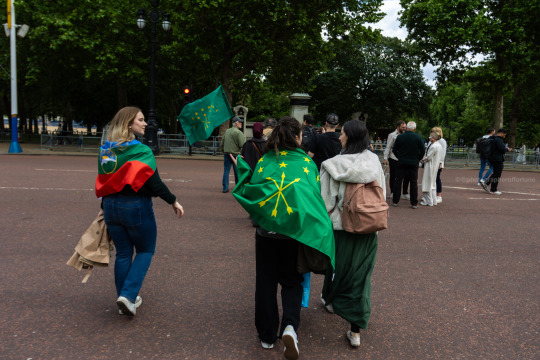




Dear All,
I want to thank everyone so much for attending the 21st of May - which took place on the 25th of May, in London.
This day was very important to have Remembrance.
161th Commemoration of the Circassian Genocide.
Once again, thank you very much! Тхьэм Уигъэпсэу!
#Circassia#Circassian#Адыгэ#Адыгэхэр#NorthCaucasus#NorthCaucasians#Circassians#АдыгэХэку#Britain#UnitedKingdom#London#21May1864#May1864#CircassianGenocide#CircassianGenocideRemembrance#CircassianGenocideCommemoration
0 notes
Text
Circassian Genocide - 161st Year of Commemoration.
Will be held in Britain, London. 🇬🇧🏴
Time: 15:30
Date: 25/05/2025
Location: Waterloo Pl, London SW1Y 4AR
Links:
https://www.facebook.com/share/15W4ZeWgsK/
https://www.facebook.com/share/1Ff3FbG318/
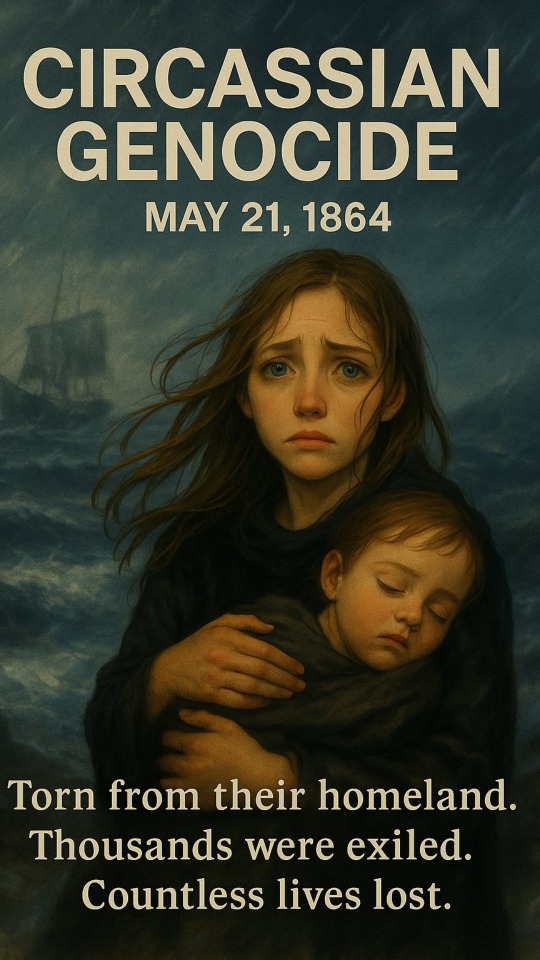
#CircassianGenocide#London#Britain#England#Circassia#Адыгэхэр#АдыгэХэку#NorthCaucasus#CircassianGenocideCommemoration
2 notes
·
View notes
Text
Circassian Genocide - 161st Year of Commemoration.
Will be held in Britain, London. 🇬🇧🏴
Time: 15:30
Date: 25/05/2025
Location: Waterloo Pl, London SW1Y 4AR
Links:
https://www.facebook.com/share/15W4ZeWgsK/
https://www.facebook.com/share/1Ff3FbG318/
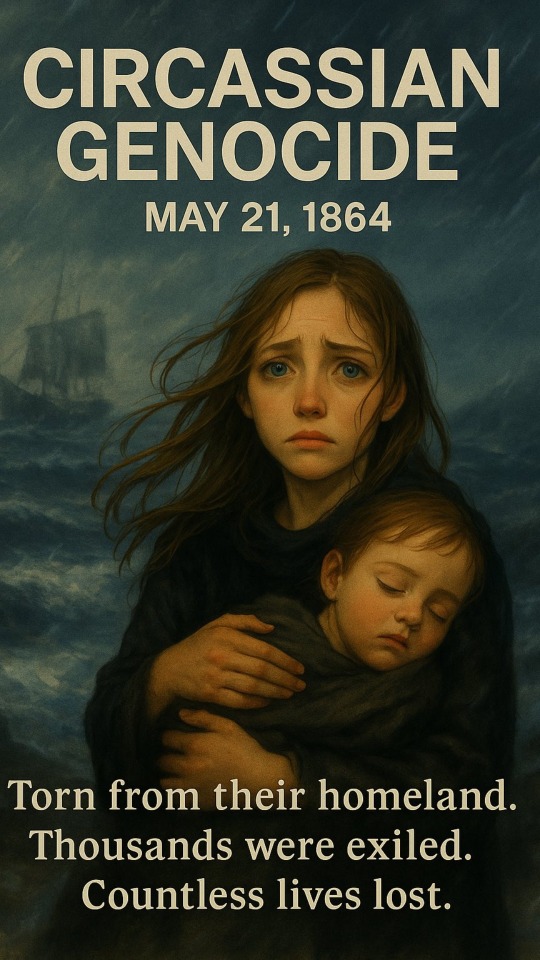
#CircassianGenocide#London#Britain#England#Circassia#Адыгэхэр#АдыгэХэку#NorthCaucasus#CircassianGenocideCommemoration
1 note
·
View note
Text

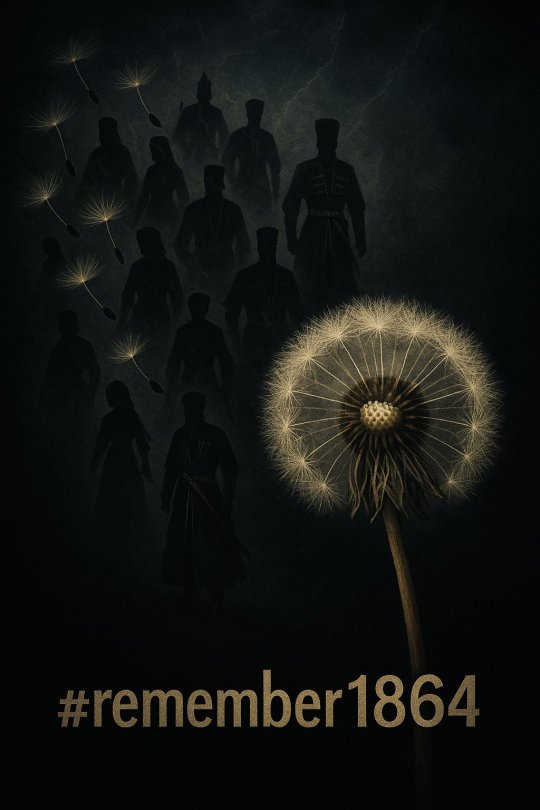
Circassian Genocide - 161st Year of Commemoration.
Will be held in Britain, London. 🇬🇧🏴
Time: 15:30
Date: 25/05/2025
Location: Waterloo Pl, London SW1Y 4AR
#CircassianGenocide
#May1864
#21May1864
Links:
https://www.facebook.com/share/16MyEbzmSo/
https://www.facebook.com/share/19yKHuHbey/
#CircassianGenocide#CircassianGenocideCommemoration#May1864#21May1864#Circassia#АдыгэХэку#NorthCaucasus#Britain#London
1 note
·
View note
Text
https://www.adiga.ai/en - Circassian speaking AI bot.
https://www.zedzek.com/en - Both dialects of Adygean and Kabardian are available.
#Адыгэбзэ 🍀
#CircassianLanguage 🍀
1 note
·
View note
Text

Circassian Ху/Хужь/фыжьы (hu/hw/hužʹ/fyžʹy; "white"), Gothic 🇩🇪 𐍈𐌴𐌹𐍄𐍃 (ƕeits), Old Gutnish Huit, OE Hwīt, Scots 🏴🇬🇧 Fyte, Wymysorys Wȧjs, OHG Wīz.
Circassian блэн (to shine, blaze, knit, braid). Russian блеск (shine, blaze), белый/бледный (white). Braid (from *bʰrēǵ- "to shine") 🎆👱♀️🔀💡
Circassian зылэн (zəlăn; to paint, colour, makeup, beautify, красить) and Proto-Slavic *zelenъ (green, зелёный).
From Circassian лъэ (leg), пэ (nose, tip), лъапэ (foot), дэн (to sew), лъэпэд (socks). See also Circassian цу (c°; ox), цуакъэ (c°āqă; shoes), цокъэжъ (coqăẑ; old shoes) → SOCK, Russian чувяк (chuvyak), Greek σύκχος (súkkhos; a kind of shoe), τσάγγα (tságga, a soft shoe) 🐂 👞
Circassian Лъэ (Lʺe; Leg), Лъэгу (Lʺegu; Sole, Level, Valley), Лъапэ (Lʺape; Foot, Paw), Пэ (Nose, Ledge), Ӏэ (Hand, Arm), Ӏэпэ (Finger) ✋👃🚶
Circassian Лъэ ("Leg") + Пэ ("Nose, Ledge") = Лъапэ (Łāpă), Russian Лапа (Lapa), Irish Lapa, Norwegian Labb, Hungarian Láb, Romanian Labă 🐾👣
Circassian Ныбэ (nəbă; belly, stomach); Veps, Old High German, Latvian, Estonian Naba (belly button, navel); German Nabe (hub). 🤰
NOTE: However, that Naba and Napa in several Finnic languages are borrowings from a Germanic language.
Circassian шъуапэ (šʺuape; "cockroach") → German Schabe → Czech šváb ("cockroach") ≠ Šváb ("Swabian, Schwabe") 🧐🐜
Circassian Лъэпэд (Łăpăd; "Socks") → Russian Лапоть (Lapotʹ; "Bast shoe, lapti, traditional footwear of Northeastern Europe") 🧦 ⪑⪒|⪑⪒
Circassian пэрыт (peryt; advanced, ahead, in front, foremost, counselor, a given name), Russian передовой (pered-ovoj; advanced, foremost) 🔝
Russian перёд (peryod; front), пре (pre; over, most, very), Polish prze (pron. PSHEH; over, great, super), Latin pretiō (I value, esteem) 🔝
Some other native Circassian words: пщы (pščy; prince), пашэ (paše; top, leader, advanced), пащхьэ/пашъхьэ (paščhʹe/pašʺhʹe; in front of) 🔝
See also Polish przed (pron. PSHED; in front of), prze (PSHEH; over, great, super, IFO), przod-owy (advanced), przód (fore) etc. (rz=sh/š) 🔝
🐛 Circassian маркуэ / марко (mārk°ă / mārko; "worm"). cf. Norwegian mark ("worm") 🐛
Greek τσαγκάρης (tsagkáris; shoemaker) < τσάγγα (tságga; a kind of soft shoe) + -άρης (-áris; -er, denotes profession) ← Circassian цуакъэ (c°āqă; shoes) < цу (c°; ox, bull), cf. укъын (wqən; to open wide, bare, uncover, flay, remove the covering).
Ukrainian жар (žar; heat, fever), вар (var; suffocating heat, boiling) Circassian жъон (ẑon), вэн (văn; to boil, plow) цуабзэ (c°ābză), вабдзэ (vābʒă; plowshare) < бзын (bzən; to cut) цу (c°), вы (və; bull, ox), pron. чъу (čw) in some other dialects 🥵 🐃≈#wagon 🚜 #parallels
Oxen were used in farms for plowing as well. 🐂 Circassian цуакъэ (c°āqă), вакъэ (vāqă; shoes), also pron. чъуакъэ (čwāqă), вакъэжь (vāqăẑ), цокъэжъ (coqăẑ; old shoes) < -жь/ъ (old). Thanks to Circassian, it's safer to say French and Middle Irish soc (plowshare) is related to🧦
а-цәаҟа (ā-c°q̇ā) (not an independent word) would be the Abkhaz spelling of this word. Abkhaz а-цә (ā-c°; ox, bull), а-ҳәа (ā-x°ā; hog, saber), а-ҳәара (ā-x°ārā; to ask, beg), а-цәара (ā-c°ārā; to suck, sleep), а-цәгьа (ā-c°g̍ā; arduous, despiteful, aggressive, bad) 💢🐃
Abkhaz а-цәа (ā-c°ā; skin, leather, cover, shell, suck, nurse, plural forming suffix as in Ан-цәа, the creator of all things, parents, progenitors, mothers, patronesses who bore the great matriarchal Apsua people) .
NOTE: Mar gheall ar an chéad dá litir. Sock (item of clothing) is related to Circassian c°āqă. Sock (plowshare) is derived from a PIE word which is also related to c°. Both come from the same root word indicating a cattle. Is é sin mo thuairim faoi. Ó, is ☘️ liom🇮🇪
In English Death is a “He,” right? In Russian it’s a “She” - Smert’.
In Circassian Death does not have any gender (no he or she) It’s called Pseheh [Psew-heh] - literally translates “The Soul Extractor.”
In English & Russian Death “comes”
In Circassian Death “visits”
Circassian жъун/вын(to melt,žw=v)💥жъуэ(~heat,shine,žw)🎇гъо/гъуэ(ġo;l-yellow,dry,hole,time)🌾👑жъуагъо/вагъуэ(star,žwago/vague)💫жъуагъэ/вагъэ(arable land, boiled)⏳Latin vagus(wandering,strolling)☄️M French vague (empty,vacant,uncultivated)👩🌾Lithuanian žarijà(heat)žvaigždė̃(🌠)
🌾 Norwegian varme (heat), gul (yellow), gull (gold), Ukrainian zorja (star, dawn) 🌆 zoloto (gold), žovtyj (yellow), Chechen or (hole), French or (gold), Circassian aka Promethean ġo/ġ°ă (light-yellow, dry, time, hole, burrow...)⌛️ ẑ°ā/vā (🔥), ẑ°āġo/vāġ°ă (🌟) To be cont'd💤
Compare South Slavic examples чир (čir; to boil), цирей (cirej; boil) as well as Icelandic bulla (to boil) and Abkhaz а-былра (ā-bəlrā; to burn). 🔥🐃
"Тхьэ/Тхьа" (Tkh'è, Tkh'a, Tha, Thar) means God in Circassian and predates Christianity. cf. Greek "θεός" (Theós) or Old Norse "Þórr" (Thor).
Circassian дахэ (dāxă; "beautiful"), дэгъу[э] (dăġ°[ă]; "good, excellent, fig. fresh, brave"), гуапэ (g°āpă; 😻 "good, pleasant, hot, cordial, guapo") ⋰Ẍ⋱ Old Irish deg, dag ("good, excellent") → The Dagda (🌄 "Good God").
Circassian дэи, дэй, дэйы (dăi, dăj, dăjə; "bad"), дагъуэ (dāġ°ă; "defect") 🧙♀️
Goedendag! Circassian дыгъэ, тыгъэ (dəġă, təġă; "the Sun, gift"), гъэ (ġă; "year"), гъуэ (ġ°ă; "time, light red") 🐷 Old English ġēr ("year"), Swedish ge ("to give"), Lithuanian dagà ("heat of the Sun, harvest"), Old Prussian dagis ("summer") 🖐️☀️
Circassian гуапэ (g°āpă; 😻 "good, pleasant, hot, cordial, guapo"), Abkhaz агәаҧхара (āg°āpxārā, "to like, wish, love") → Greek αγαπάω (agapáo; "love").
Circassian гу (g°), Abkhaz агәы (ā-g°ə́; heart), агәара (ā-g°ār-ā; fence, safe place for goods, mountainous KARTli→Georgia), Greek καρδιά (kardiá;💟), αγορά (agorá; CENTRE of public life, marketplace), Russian гора (gorа; mountain), Mingrel გური (guri;💟, stuffing). CORE, PILE🗻
Circassian уэс/ос/осы (wăs/ves/ues/os/osy; "snow, снег"). cf. Finnish vesi, Irish uisce, German Wasser, Wymysorys woser ("water, вода"). ❄️💦
Circassian уэшх/ощхы (wăšh/oš̍hy; "rain"). cf. English wash, German waschen etc. 🌧️🚿
Circassian уэрэд/орэд (wărăd/wrd/orăd/ord; song), English word, Old Norse orð, Latvian vārds (name, word), Hittite weriya- (to call, name)🗣️
Circassian псалъэ (psāłă; "word"), псэлъэн (psăłăn; "to talk"). Compare Greek ψάλλω (psállo; "to sing, make a sound by vibrating") etc. 🔊
Greek ψάλλω (psállo; to sing) → ψαλμός (psalmós; psalm, sacred song), Russian псалом (psalom). See also Kashub Psôle/Psalmë, Polish Psale.
Circassian мыл/мылы (məl; ice, лёд). 🥶 cf. English melt (таять) from *(s)mel- (молоть, to crush, grind, dwindle > малый/small etc.), *mel- (delicate, weak, brittle), mellow, mill… More than "M"ostratic. ⚗️
Circassian джэгу and гьэгу (ǯ̍ăg°, ɡ’ăg°; play, game, Jegu 🕺🃏), English joke, Spanish jugar (to play), Latin iocus (pastime, amusement) GAG 😜
Circassian Псэун (pseun; "to live"), Псэу (pseu; "alive"), Псэ (pse; "soul, psyche"), Псэущхьэ/-шъхь (pseuščhʹe/-šhʹ; "animal"). cf. Ψυχή...
Circassian Псэрыдж (pseryj; "study of the soul, psychology"), Псэущхьэ (pseuščhʹeʹ; "animal"). See also Ancient Greek Ψυχή (psukhḗ; "soul").
Circassian щӀэн/шӀэн/щкъэн (ščen/š[kʺ]en; to know, make), хьын (hʹyn; to carry, take), щхьэ/шъхьэ (ščhʹe/šʺhʹe; head, lit. take knowledge) 🧠
Circassian щӀэн/шӀэн etc. (ščen/š[kʺ]en; to know, make), щӀэныгъэ/шӀэныгъ (š[č]enygʺ[e]; knowledge, SCIENCE!), Latin sciō (I know, make) 👨🔬
Circassian Лъагагъ (Lʺagagʺ; "height"), Лъагэ (Lʺage; "high"). Gothic 𐌻𐌰𐌲𐌲𐌴𐌹 (Laggei; "length"), German Lang ("long, high, lofty, tall"). 🦒
Circassian Лъапӏэ (dear, sweet, beloved, valuable, expensive, high, holy, honorary), Lithuanian Liaupsė (praise), MHG Liep (dear) etc. 💎🙏💛
Circassian Лъэтэн (Lʺeten; to fly, jump up). cf. Russian Летать (Letatʹ; to fly), Lithuanian Lė̃kti (to fly), Latvian Lèkt (to jump) etc.
Migratory [bird]: Circassian Лъэтэж (Lʺetež), Russian Перелётный (Perelëtnyj). 🐦💨 + Circassian Лъэтэныгъэ etc. (Lʺetenygʺe; "flight") 🛫
Circassian Лъ(а/э)гъун (Łāġ°n; to see), Germanic *lōgijaną (to see), mid-English Loken (to look), Scots Leuk (to look), Breton Lagad (eye) 👀
Circassian бдзы/пцы (bdzy/ptsy; bit🔩), дзэ/цэ (dze/tse; tooth😬), Old High German biz (bite), Ger. Beize (morDant), Zahn (😬), Danish bid (😬).
🏡 хадэ/хатэ (hade/hate; garden/Garten, Ha[u]ge), хадзэ (hadze; entrance, introductory, inset, hedge), хасэ (hase; assembly, meeting, Haus).
Circassian бдзэ/пцэ (bdze[žʹej]/ptse[žʺyj]; fish), Latin piscis, Italian pesce, Greek ψάρι (psári), Welsh pysgod (🐠), pryd/bwyd (food) etc.
Circassian Гуапэ (Guape; "good, pleasent, affectionate, hot, warm, cordial"). False cognate with Spanish Guapo ("good-looking, handsome")? 🤵
Circassian сэ (se; I, self, knife), шъэжъый etc. (šʺežʺyj; 🔪). cf. English sew, NFris sei, Swedish sy, Polish szyć, Bulgarian шия (šija) etc
Circassian сэ (se; I, self, knife), ежь/езы (ežʹ/ezy; self, alone). cf. Slavic *sę, *samъ, *(j)azъ, Balto-Slavic *eź etc.
Self: Latin se, sese, ipse, Estonian ise, Finnish itse, Bulgarian се, Circassian сэ etc. See also só, solo, seul, suis, soi...
Circassian хэт, сыт, сыд, шъыд (het, syt, syd, šʺyd), Bel/Rus хто, кто, что, што (hto, kto, čto, što), OFris hwet etc.
Дыгъэ (Dygʺe; "sun, light, heat"), Тыгъэ (Tygʺe; "gift, sun"), Гъэ (Gʺe; "year, annual, summer"). cf. Old English Ġēr (“year”) etc.
Ġēr is also the Anglo-Saxon name of the Runic letter "ᛄ", which is associated with the year or the harvest. 🌞
Moreover, according to Kroonen 2013, *r is not part of Ġēr/Ġēar's root. *yeh₁- rather than *yeh₁r-.
Circassian Дыгъэ/Тыгъэ ("sun") is probably not related to English Day, Kartvelian *deɣ-, German Tag, Gothic 𐌳𐌰𐌲𐍃 (dags) etc.
Day is related to Old Irish Daig (gen. Dage; "fire, pain"), Lithuanian Dagà ("heat of the sun, harvest"), Old Prussian Dagis ("summer") etc.
Surely, Circassian: Мазэ 🌕 (maze; moon, month), Псы (psy; water), Уашъо/Уафэ (uašʺo/uafe; sky), Дыгъэ/Тыгъэ (dygʺe/tygʺe; sun), Гъэ (gʺe; year).
Circassian Шъ/Щхьэ (šʺ/ŝhʹe; "top, roof, cephalic, head"), ПаIо/ПыIэ (pao/pye; "hat, cap, covering, pile"). 💂♀️🧢 #Caput #Chapeau (sha-poh).
Circassian Тет (chief, head), Те- (on), Тесын (tesyn; to sit on sth), ТӀысын (tysyn; to sit down). French Tête (head, leader), Italian Testa.
Circassian: Хуэхуэлей (Huehuelej; Ukraine), Урысей (Urysej; Russia), Урысыху (Urysyhu; Belarus), Лахь жылэ/Полшэ (Lahʹ žyle/Polše; Poland).
In the Circassian language, Moscow is called "Мэзкуу" (tr. mezkuu; "deep woods, deep forest"). Мэзкуу = мэз ("forest, wood") + куу ("deep").
The Kuban River is called Псыжь (psyžʹ; "old river") in Circassian. Псы ("water, river"). cf. Psizha River (Река Псижа) in Novgorod Oblast. 🐟
Circassian Псы (psy; river), Псыжь (psyžʹ; old river). cf. Psizha River in Novgorod, Pissa River in Kaliningrad, Pisa River in Poland etc. 💧
Circassian Дэлъху (delʺhu; "brother"), Дэлъхьэн (delʺhʹen, "to put in"). cf. Greek Αδελφός (adelfós; "brother"), Δελφύς (delphús; "womb"). 🐬
+ Psël River in Ukraine and Russia.
Pskov, by the river of the same name, is a city and an oblast in Russia:
https://ru.m.wikipedia.org/wiki/%D0%A2%D0%BE%D0%BF%D0%BE%D0%BD%D0%B8%D0%BC%D0%B8%D1%8F_%D0%9F%D1%81%D0%BA%D0%BE%D0%B2%D1%81%D0%BA%D0%BE%D0%B9_%D0%BE%D0%B1%D0%BB%D0%B0%D1%81%D1%82%D0%B8
It has been suggested that ++
++ Pskov is likely to be derived from the Circassian word псыкуу. Псыкуу (psək°w; "deep river") = псы ("water, river") + куу ("deep"). 🏞️
It may be naïve to associate the female name Tatiana with Titus Tatius. At least for the Slavic and Circassian versions of that...
Mother rather than aunt... Similar to the Circassian female name Тэтянэ/Татьянэ: т-/ти-/ди/тэ-/тэтый (our) + ӏанэ/анэ (mother, table, soil).
Speaking of Earth Mother, compare Circassian Ӏанэ/Анэ with Latin Anus (old woman), Turkic *ana (mother), Old Prussian Ane (grandmother) etc.
Linguist Huratov argues large numbers of Circassian words have been borrowed into other languages of Europe where Circassians are indigenous:
https://adigea.aif.ru/culture/details/49045
(1) Circassian Къуапэ (angle, extremity, end...), English Cape, Norwegian Kapp, Dutch Kaap... cf. Dutch and German Kappen (to cut down)...
(2) Circassian Яжьэ (ash). cf. Middle English and German Asche, West Frisian Jiske, Luxembourgish Äsch, Gothic 𐌰𐌶𐌲𐍉 (azgō) etc.
Фэ (fe) means skin in Circassian. cf. Germanic *fellam, *fellą, Latin Pellis, French Peau, Spanish Piel, cognate with English Pelt, Film etc...
Circassian Зао/Зауэ (war), Зауэ-банэ (warfare, fight). cf. Proto-Slavic *zъlъ, Serbo-Croatian Зао/Zao (bad, evil, malevolent, wicked). ☠️
Еуэн means to hit, yes, and to fight with each other is зэзэуэн. The first зэ- is the verbal prefix. ++
SBC Zao (ill-disposed) is from PIE *ǵʰwel- (to deceive, bend, persecute), also related to *weyh₁- (to chase, hunt) and *bʰey- (to hit, bane).
*weyh₁- > *woyh₁ (to hit, hunt) > Proto-Slavic *vojь (warrior) > Russian война (war) etc
Circassian 🍀 Банэ/Панэ means both thorn/spine/prickle and fight (Зауэ-банэ). Old English 🏴 Bān (bone of a limb), cognate with Bane (destruction). ☠️
90 (20 × 4 + 10) in Circassian: ТокӀиплӀырэ пшӀырэ (Tokiplyrè pšyrè), ТӀощӀиплӀыэ пщӀырэ (Toščiplyè pščyrè, old system), or бгъущӀ (bgʺušč).
90 (20 × 4 + 10) in Scottish 🏴 Gaelic: Ceithir fichead 's a deich, Deich is ceithir fichead, Naochad, Naogad, or Naoidhead (new system).
Basque: Laurogeita hamar, Breton: Dek ha pevar-ugent, French: Quatre-vingt-dix, Welsh: Deg ar pedwar ugain (or "Naw deg") – 90 (20 × 4 + 10).
Native name of Sukhumi or Dioscurias (capital of Apsny) is Аҟәа (ɑqʼʷɑ), an old word for water in Abkhaz. cf. Gothic 🇩🇪 𐌰𐍈𐌰 (aƕa), Latin Aqua..
BRIDE: Circassian Нысэ (Nysè), Albanian Nusja, Basque Neska (GIRL), Greek Νύφη (Nyphē), Russian Невеста (Nevesta), Scots Gælic Nighean-cèile.
Again about moon. Circassian Мазэ (mazè), English Moon/Month, Ibero-R Mes, Italian Mese, Polish Miesiąc, Russian Месяц (mesyats), Slovenian Mesec, Welsh Mis..
Circassian Къэщэн (Kʺèščèn, qăš̍ăn, kashchan) (to marry a woman, lover), cf. Polish Kochane (lovely), Kochany (dear), Kochanieńki (sweat). 👻
Circassian Пый/Бый (enemy, foe), cf. Proto-IE *peik/k̑- (to be hostile, hate), Latin Piget (annoying), Lithuanian Pìktas (evil), etc...
Circassian ХьэщӀэ/ХьакӀэ (guest), ГъэщӀэгъуэн/Гъэшӏэгъоны (strange); Old English Ġiest (g., stranger, host), Geelþéodgian (to make strange)...
WELL, YES: Ну ды (Belarusian), Ну да (Russian, Ukrainian), НытӀэ (Circassian), No tak (Polish), Na taip (Lithuanian), Nu jā (Latvian), Nå ja.
YES in Circassian НытӀэ (Da/Nta/Nytè/Noda/Nyda), Welsh Yn dda (well), Slavic Да (Da) No Так (Tak) Ну (Ni), Greek Ναι (Ne), Finnish No (well).
Ары = yes| хьау = no
Not КӀах Адыгэбзэ (KӀakh-Adygèbzè; Lowland Circassian). "НытӀэ" is Къэбэрдей Адыгэбзэ (Kʺèbèrdèj Adygèbzè; Highland Circassian).
Макъ(э)+Ӏей/Ӏай (makʺʔèj) means bad voice in Circassian. cf. English Mock, M. Dutch Mocken (to mumble), Proto-Germanic Mukkijaną (to bellow).
Again, "Тхьэ/Тхьа" (Tkh'è, Tkh'a, Tha, Thar) means God in Circassian and predates Christianity. cf. Greek "θεός" (Theós) or Old Norse "Þórr" (Thor).
Circassian дахэ (dāxă; "beautiful"), дэгъу[э] (dăġ°[ă]; "good, excellent, fig. fresh, brave"), гуапэ (g°āpă; 😻 "good, pleasant, hot, cordial, guapo") ⋰Ẍ⋱ Old Irish deg, dag ("good, excellent") → The Dagda (🌄 "Good God").
Circassian дэи, дэй, дэйы (dăi, dăj, dăjə; "bad"), дагъуэ (dāġ°ă; "defect") 🧙♀️
Circassian гуапэ (g°āpă; 😻 "good, pleasant, hot, cordial, guapo"), Abkhaz агәаҧхара (āg°āpxārā, "to like, wish, love") → Greek αγαπάω (agapáo; "love").
Circassian гу (g°), Abkhaz агәы (ā-g°ə́; heart), агәара (ā-g°ār-ā; fence, safe place for goods, mountainous KARTli→Georgia), Greek καρδιά (kardiá;💟), αγορά (agorá; CENTRE of public life, marketplace), Russian гора (gorа; mountain), Mingrel გური (guri;💟, stuffing). CORE, PILE. 🗻
Goedendag! Circassian дыгъэ, тыгъэ (dəġă, təġă; "the Sun, gift"), гъэ (ġă; "year"), гъуэ (ġ°ă; "time, light red") 🐷 Old English ġēr ("year"), Swedish ge ("to give"), Lithuanian dagà ("heat of the Sun, harvest"), Old Prussian dagis ("summer"). 🖐️☀️
In Circassian, "Хасэ" (Khasè) means assembly, council, and parliament. Compare it with the words "House", "Haus" (proto-Germanic *hūsą), etc...
Related Links:
https://www.facebook.com/share/p/15VYToqmLY/
https://www.tumblr.com/circassianhatko/768735349160771584/log-into-facebook
#Адыгэбзэ
#CircassianLanguage 🍀
#NorthCaucasus 🍀
#Circassia 🍀
#АдыгэХэку 🍀
1 note
·
View note
Text
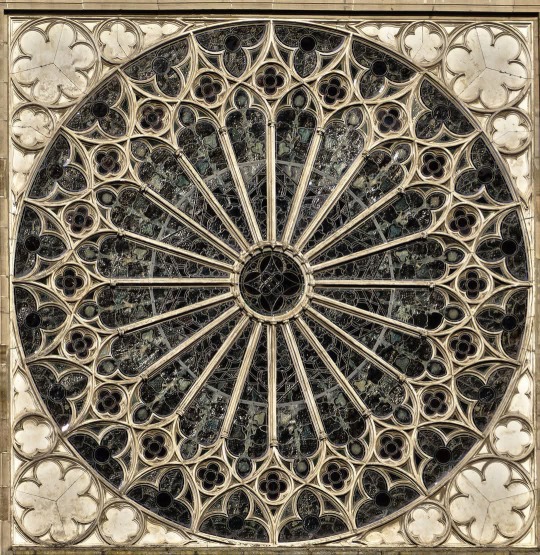
Circassian 🍀 Бжьэ (Bžʹe; "bee, bowl, horn, hornet"), Ukrainian 🇺🇦 Бджола (Bdžola), Russian 🇷🇺 Пчела (Pčela), Old Irish 🇮🇪 Bech, Lithuanian 🇱🇹 Bitė etc. 🐝🥃
Etymology = History. In the Circassian 🍀 language, бжьэ (bžʹe) = bee, hornet, horn, drinking horn, bowl, glass, tube, flute [glass], slender..
With love from the Most Fashionable Circassia, [t͡ʃʼaːɡʷa]/[t͡ʃʼaːkʷa] Circassian кӏэ (č̣̍ă; "tail"), кӏагуэ/кӏако (č̣̍āg°ă/č̣̍āko; "short, short-tailed, short padded coat, smock, suit"), e.g. кӏагуэ дыта (č̣̍āg°ă dətă; "quilted vest")
[t͡saːkʷa] цы (cə; wool, hair, featherdown) + [и]куэ[н]/[и]ко[н] ([to] stuff, cram, fill) → цакуэ (cāk°ă/cāko; light padded coat) < lit. "wool-stuffed" цы + -ей (that belongs to) → цей/цый (homespun cloth, Cherkeska) < lit.
"of or pertaining to wool or woolen cloth"
cf. Italian 🇮🇹 giacca (jacket, coat), French 🇫🇷⚜️ jaque (gambison), German 🇩🇪 Jacke (jacket), Norwegian 🇳🇴 jakke, Latvian 🇱🇻 jaka (jersey, blazer), jacket (from the French 🇫🇷⚜️ diminutive form), of unknown origin… Unless you know the good old Circassian.
Sacque, also of uncertain origin, is one of the most confused words because of the different senses of "sack". German 🇩🇪 Sakko (sportcoat), Romanian 🇷🇴 sacou, Czech 🇨🇿 sako, Macedonian 🇲🇰 сако (sako), Serbian 🇷🇸 сако, Croatian 🇭🇷 sako.
The Circassian 🍀 word щхьэнтэ (/ɕħanta/; pillow, подушка), from щхьэ (head, голова) + -н + -тэ (place to lay one's head, место для головы), has been borrowed into many languages, including Ottoman 🇹🇷 as /t͡ʃanta/ (bag). cf. Old English 🏴🇬🇧 codd (bag, сумка), Scots 🏴🇬🇧 codd (pillow, подушка).
Albanian çantë 🇦🇱
Arabic شَنْطة (šanṭa) 🇸🇦
Armenian չանթա 🇦🇲
Aromanian čantă
Azerbaijani T çanta 🇦🇿
Bulgarian чанта 🇧🇬
Chagatai T جونتاى
Crimean T çanta
Gagauz T çanta
Georgian ჩანთა 🇬🇪
Greek τσάντα 🇬🇷
Ladino chanta
Macedonian чанта 🇲🇰
Persian چنته 🇮🇷
Romanian geantă 🇷🇴
Serbian чанта 🇷🇸
Turkish çanta 🇹🇷
etc.
The Circassian 🍀 word щӏакӏэ ("chaff, мякина", borrowed into Ottoman 🇹🇷 as şaka "поддразнивание"), from щӏэн ("to do, cultivate, уметь что-л. делать, возделывать, выращивать"), щӏа ("произведенный, сделанный"), кӏэ ("tail, хвост[ы]"). Tailing
cf. English 🏴🇬🇧 chaff (мякина, поддразнивание).
Ottoman Turkish 🇹🇷 شاقا, Chagatai شقّه, Ladino shaka, Albanian 🇦🇱 shaka, Gagauz şaka, Turkish şaka, Crimean Tatar şaqa or шакъа ("joke")…
I reveal, for the first time, that they come from the Circassian 🍀 word щӏакӏэ /ɕʼaːkʲʼa/ "chaff".
In the Circassian 🍀 language, щӏакӏэ ("chaff") / шӏакӏэ ("unwanted plants, сорняк"),
щӏанэ / шӏанэ ("seedlings"), щӏэгъуэ / шӏэгъу ("time to do business, sow, plant, время делать, сеять, сажать"), щӏэн / шӏэн ("to do, cultivate, grow sth"), кӏэ ("tail, end, excess, unwanted part")
Compare English 🏴🇬🇧 chaff ("the husks of a grain-producing plant, anything worthless, rubbish, light-hearted joking, teasing"), tailing ("the lighter parts of grain separated from the seed by winnowing or threshing"), tail grain etc.
Most likely, the word hair in the Turkish 🇹🇷 language is also borrowed from the Circassian language, which is sha-tz and in Turkish 🇹🇷 its saç...
Another word Hat in Turkish 🇹🇷 is şapka which is borrowed from Russian 🇷🇺 and most possibly be again originated by the word "Sha" in our Circassian language.
Circassian сыр/стыр (sər/stər; "scalding, burning, hot, bitter"), сын/стын (sən/stən; "to burn"). Compare Ancient Greek 🇬🇷 Σείριος (Seírios; "Sirius"), believed to mean "scorching" or "burning" 🆚 Welsh 🏴 sêr ("stars"), Tocharian A śre ("star")…, from a PIE (Proto-Indo-European) word meaning "to burn". ✴️
Circassian сыр (syr; spicy, searing) Ru. сыр (cheese) OPr. suris (#sour milk cheese) Lv. sūrs (bitter) Lt. sūrus (salty) La. serum (whey)...
Another word in Circassian could be "Къуае".
Indeed, the word "whey" (of uncertain origin) might come from the Circassian language. Scots 🏴 quhey, Old Dutch 🇳🇱 *hwei, Proto-Germanic 🇩🇪 *hwają..
cf. 🧀 in various forms of the Adyghe language: Old Adyghe кхъуайэ, Kabardian Adyghe кхъуей, Temirgoy Adyghe къуае, Shapsug Adyghe хъуае etc.
A Circassian word "Теувэн" (tewvăn; stand still on, stand on, stay on top of, place in horizontal position, step, stop on sth, ascend the throne, set foot, set off, tread, enter), те- (on the surface of sth), иувэн, увын (to stop, stand up, establish, consolidate, assert) ⏸️👢🛳️🏋️♂️🏬🦟💹
Circassian Ху/Хужь/фыжьы (hu/hw/hužʹ/fyžʹy; "white"), Gothic 🇩🇪 𐍈𐌴𐌹𐍄𐍃 (ƕeits), Old Gutnish Huit, OE Hwīt, Scots 🏴 Fyte, Wymysorys Wȧjs, OHG Wīz.
Circassian блэн (to shine, blaze, knit, braid). Russian 🇷🇺 блеск (shine, blaze), белый/бледный (white). Braid (from *bʰrēǵ- "to shine") 🎆👱♀️🔀💡
Circassian зылэн (zəlăn; to paint, colour, makeup, beautify, красить) and Proto-Slavic *zelenъ (green, зелёный) 🌱👨🎨☘️
In Circassian 🍀 Кӏо/Кӏуэ (go), Кӏон/Кӏуэн (to go). cf. Old English 🏴🇬🇧 Gān, German 🇩🇪 Gehen, Middle High German 🇩🇪 Kēn/Gēn, Swedish 🇸🇪 and Danish 🇩🇰 Gå etc. 👋
Circassian АДРЭ (ādră; OTHER), АДРЭЙ (ādrăj), determiner а (ā) > адэ (ādă; there) + attributive suffix -рэ (-ră), that other (of two), of that place, АДРЭР (ādrăr), АДРЭРИ (ādrări)… Old Norse AÐR- (AÐRA, AÐRAR…), Faroese f dat sg AÐRARI, Spanish f OTRA, French AUTRE (Infection).
Circassian тӏу (ṭw; "two"), етӏ[у]анэ (e-ṭ[w]ānă; "e dan, and t[wo]hen, second"), япэ (jāpă), апэ (ā-pă; "at first, in front") < пэ (pe; "fore, tip") > пае (pāe; "for"), япэрэ ([j]āpără; "first"), япэр[э/а]у[э] ([j]āpăr(ă/ā)w[ă]; "first[ly]"), Russian первый (perv-yj; "1st").
🖐️ Circassian ӏэпэхъ (ʾăpăχ; "openwork") < ӏэ (ʾă; "arm"), ӏэпэ (ʾăpă; "paw, hand", lit. "arm's tip"), -хъ (-χ; "knit, weave"). cf. opaque ("allowing little light to pass through").
Openwork https://x.com/MerriamWebster / https://linktr.ee/MerriamWebster: "work constructed so as to show openings through its substance" 🧙♂️🧶
🕸️🕷️ handiwork, craft, openwork, filigree, carving, lace, tight-knit, net; mandala, rose window, tracery, stained glass, veil, frosted; dim-lit, shaded, not transparent, shady, obscure, unclear, hard to get or explain the meaning of #ӏэпэхъ > #opācus 🖐️✋ #HolyMantle
Overall, the Circassian language that amazingly has connections to all languages & language families on earth 🌎🌍🌏 is still the most challenging/difficult language to learn and still is to be the most mysterious. It is still today classed as an isolated language.
#Адыгэбзэ
#CircassianLanguage 🍀
#NorthCaucasus 🍀
#Circassia 🍀
#АдыгэХэку 🍀
0 notes
Text

Alina Pek from Chegem (Circassia 🍀) became the first Russian woman (of Circassian 🍀 origin) to climb 14 of the highest mountains on Earth. ⛰️ 🏔
In total, only 40 people worldwide have ever done this. Ascent to Everest, she dedicated 159th anniversary of the end of the Caucasian war on the 21st of May, in the year 1864. 🍀
4 notes
·
View notes
Text
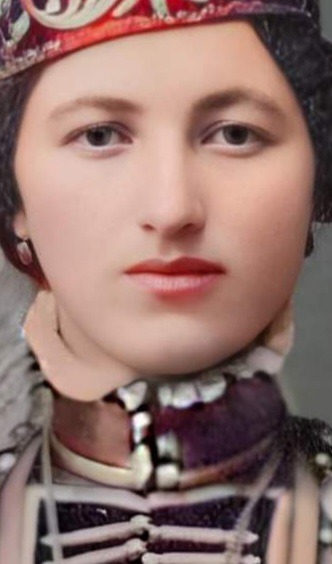

"Circassian 🍀 girls, even when they reach maturity, are not excluded from public life. Usually a girl is brought up with her brothers and is as skillful as they are in handling a horse 🐴🐎 and shooting a bow. 🏹
If girls generally submit to the will of their father or elder brother, they often also show independence in marriage and refuse those who are not nice to them.
This great freedom of girls and the sociable life of young people is the reason why Circassian 🍀 marriages are unlike those of other Eastern peoples (or others across the world, in general).
Just as a woman is independent in choosing a husband, so young people, at least silently, are allowed to have their own voice in choosing a future spouse.
A father or elder brother, as a rule, leaves the choice of a spouse to his son, and often to his daughter. ⚜️
It does honour to a young man when he takes less account in such a case of wealth and beauty, and more - of courtesy and intelligence." 🍀
Karl Koch.
JOURNEY ACROSS RUSSIA AND TO THE CAUCASIAN 🍀 LANDS [IN 1836, 1837 AND 1838]
2 notes
·
View notes
Text

Illustration to the Circassian 🍀 Fairy Tale,
"The Bear 🐻 as Nurse"
STORY:
In the distant past, an old man lived with his old woman. In the whole village there was no one poorer than them. They never had warm clothes to wear, and they could never eat enough. But that was not what the two of them complained about. The fact that they had no child, that no carefree, boisterous children's laughter could be heard under their roof, that was what caused them grief... One day, however, their hearts warmed; the woman had given birth to a boy. He was healthy. He was beautiful and happy. And like a ray of sunshine 🌤☀️, he brightened his parents' evening years. They now had a son, but how should they clothe him, what should they give him to eat?
"If we wrap him in rags, people will mock us and the little one," said the old man to his wife. "Let the three of us go into the forest, perhaps we will find what we need to live there."
In the deep, slumbering forest 🌳, where no human had ever set foot before, they built themselves a small hut 🏡. One day the old man went deeper into the thicket to look for prey. The old woman, however, stayed in front of the hut in the sun 🌤☀️ with the little one, rocking him in her arms and singing him a sad song.
Then she laid the bundle down on the threshold to check on the house 🏡 for a moment. At that moment a large, old bear 🐻 came stumbling out of the bushes, grabbed the tiny human bundle and dragged it with him into the darkness of the forest 🌳. Oh, the old woman almost killed herself with terror. She cried and screamed - nothing helped, her child remained missing. Towards evening her husband returned home 🏡. But there was indescribable grief - one would not wish such a thing on one's worst enemy. Together, they bore their grief, together they decided: "We will never leave here. Here, where we have lost our only child, here death shall take us too."
In the meantime, the bear 🐻 had dragged the human baby into his cave and began to care for it as if it were a bear 🐻 cub. He fed the little one with wild nuts 🥜, berries 🫐 and honey 🍯🐝. When he slept, he snuggled him up to his soft, woolly, warm, broad bear 🐻 chest.
When the boy had grown up, the bear 🐻 took him to a clearing, chose a young, strong oak 🪵 tree 🌲 and ordered: "Come on, try it, pull it out with all its roots!" The boy put his arms around the trunk. He tried again and again.
The oak 🪵 tree 🌲 bent, but he couldn't pull it out.
"Obviously it's too early for that," grumbled the bear 🐻.
Years had passed again, and again the bear 🐻 took the boy to the clearing in the forest 🌳🌳🌳 so that he could pull the oak tree 🪵🌲 out of the ground.
But the oak tree 🪵🌲 had also grown and become even stronger in the meantime. And this time too, his efforts were in vain; the oak tree 🪵🌲 remained in the ground.
"Too early, brother, still too early," grumbled the bear 🐻 again.
One fine day, the little boy had become a strong, skillful and handsome youth. The bear 🐻 led him to the clearing for the third time. A mighty oak tree 🪵🌲 stood tall and erect. Its thick branches stretched out far away. But the Son of Man also felt great power. He wrapped both arms around the mighty tree trunk and, as if it were a blade of grass, he pulled the mighty oak tree out of the ground, along with its roots. "Now, my son, I can tell you who you are!
Many years ago I was wandering through the forest and suddenly saw a tiny, miserable hut. On the doorstep sat a woman with a baby in her arms, singing it a sad lullaby. 🎶
She complained that she had nothing to feed her little one. I listened for a long time and felt sorry for the mother and the child. When the woman took her eyes off the child for a moment, I grabbed it, along with the pillow, and ran away with it. That child, that little boy from back then, is you! I raised you, taught you and made you strong and powerful.
Now, return to your mother and father, be their help and protection. Go and learn the customs and traditions of men, but always remember:
"Evil always brings evil in its wake. But good always sows new good deeds!"
The youth thanked the bear 🐻 for his care and teaching and returned to his human parents. 👨👩
Together they set off for their home town. Their life became beautiful. There was no longer room for suffering under their roof, but there was room for everyone who needed help and knocked on their door.
The End....
NOTE:
* Aul = Circassian/Caucasian 🍀 mountain ⛰️🏔 village.
"The Circassians are far too unruly to submit to duty and custom."
Osmanbey, son of Vizier Magomed-Pasha (Turkish 🇹🇷 officer), 18th century
Illustration by SD Soldatow from: Rellers Völkerschafts-Archiv 🇩🇪
Reference Link:
http://www.reller-rezensionen.de/voelker/tscherkessen.htm
Facebook Link:
#CircassianFairyTale#CircassianMythology#CircassianTale#NartSaga#NartSagas#Circassia#АдыгэХэку#Circassian#Адыгэ
1 note
·
View note
Text
Today, I went to Apollo Art Auctions (https://www.apolloauctions.com) in London, Britain. 🏴🇬🇧
In person, I saw and touched Tsar Nicholas II's shashka. This gave me thoughts and emotions.
This is their most expensive item they are selling, out of all of their historical items/artefacts. This may possibly be the most expensive historical item to sell in London.
This Apollo Auction place has been around for roughly 5 years.

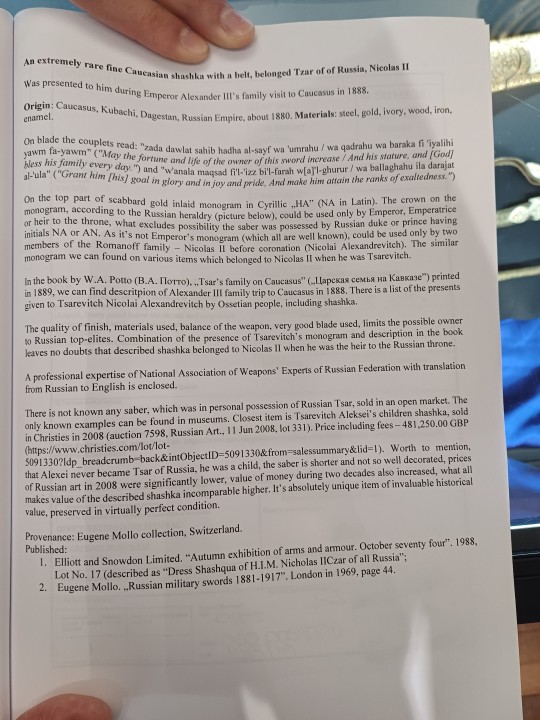
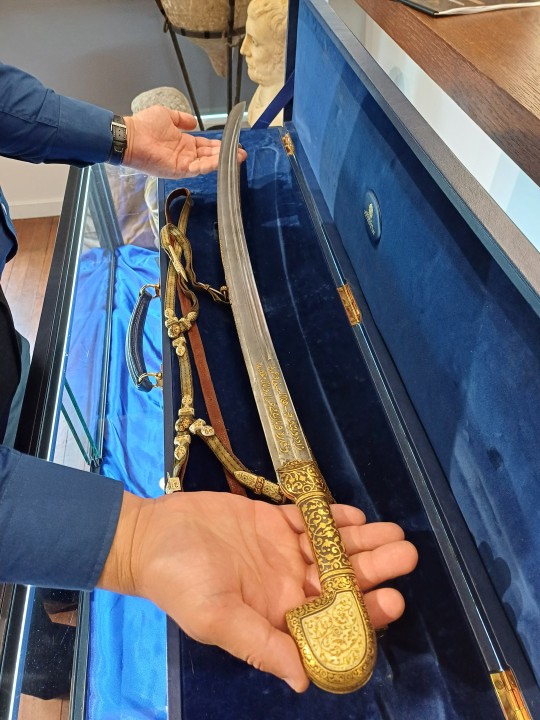
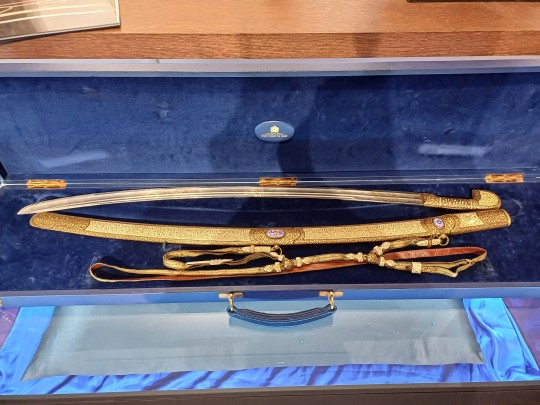

#circassian#CircassianShaskha#TsarNicolasII#TsarNicholasII#TsarNicolasIIShashka#TsarNicholasIIShashka#CircassianWeapon#Шашка#Адыгэ
3 notes
·
View notes
Text
Circassian Genocide 160th Year Commemoration in London, Britain. 🏴🇬🇧
Credit: Zak Irfan
YouTube Link: https://youtu.be/C7ss90k0gWI?si=hsY8XuOZQkVUijhZ
0 notes
Text
0 notes
Text
0 notes
